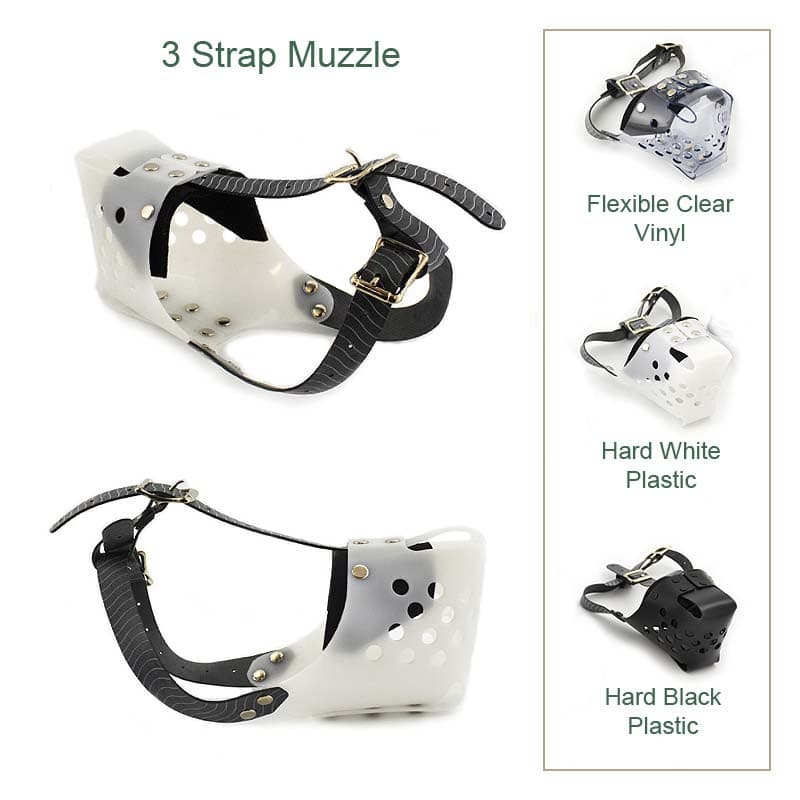How Do Collagen Sticks Support Ageing Dogs’ Joints?

As our canine companions grow older, their joints can start to show signs of wear and tear, leading to discomfort, stiffness, and reduced mobility. These changes can significantly impact their quality of life. Collagen sticks have emerged as a popular, tasty supplement designed to support joint health in senior dogs. This article dives deep into how collagen sticks work, the science behind them, and what dog owners should consider before introducing them into their senior dog's diet.
Understanding Joint Problems in Senior Dogs
Common Joint Conditions in Ageing Dogs
Joint problems are one of the most common health issues faced by senior dogs. Osteoarthritis (OA) is the primary culprit, affecting nearly 80% of dogs over eight years of age. It results from the breakdown of cartilage, the smooth, cushioning tissue that covers the ends of bones in a joint. Without this cushion, bones rub together, causing pain and inflammation.
Another prevalent condition is hip dysplasia, a genetic disorder where the hip socket doesn’t fully cover the ball portion of the upper thighbone. This causes joint instability, pain, and eventually arthritis. Large and giant breeds such as German Shepherds, Labradors, and Golden Retrievers are most commonly affected.
Lastly, degenerative joint disease refers to progressive wear and tear of joint structures, which is a natural part of ageing but can be accelerated by injury, obesity, or lack of exercise.
Signs Your Dog May Have Joint Pain
Detecting joint pain in dogs early can improve management outcomes significantly. Some subtle and obvious signs include:
-
Limping or favouring a leg, especially after activity
-
Stiffness after waking up or resting for long periods
-
Reduced willingness to jump, run, or climb stairs
-
Reluctance to play or decreased enthusiasm during walks
-
Changes in behaviour, such as irritability or withdrawal, might indicate discomfort
-
Muscle loss or wasting around the affected joints due to decreased use
If you notice any of these signs, it’s crucial to consult with your veterinarian. Early intervention can help slow progression and improve your dog’s comfort.
Why Joint Health Declines with Age
Joint health declines due to several biological factors:
-
Decreased Collagen Production: Collagen is the primary protein in cartilage, ligaments, and tendons. As dogs age, natural collagen production slows, reducing the structural integrity and repair ability of joints.
-
Increased Inflammation: Ageing joints often experience chronic low-grade inflammation that damages tissues over time. This inflammation contributes to pain and stiffness.
-
Cartilage Breakdown: Cartilage naturally degrades with age, reducing cushioning and increasing bone friction. This not only causes pain but also stimulates further inflammation.
-
Reduced Blood Flow: Older dogs may have less efficient blood circulation to joint tissues, limiting nutrient delivery and waste removal essential for repair.
Together, these factors create a vicious cycle that accelerates joint degeneration.
What Are Collagen Sticks for Dogs?
Composition and Nutritional Breakdown
Collagen sticks are functional treats infused with collagen peptides, often combined with other joint-supporting nutrients. The collagen used in these sticks is usually hydrolysed collagen, meaning it’s broken down into smaller peptides for easier absorption through the digestive tract.
Types of collagen relevant to dogs:
-
Type I collagen: Found mostly in skin, bones, and tendons.
-
Type II collagen: Found in cartilage, crucial for joint health.
-
Type III collagen: Present in skin and organs, supports elasticity.
For joint support, Type II collagen is the most beneficial, as it directly helps rebuild and maintain cartilage integrity.
Other common ingredients often included:
-
Glucosamine: Supports cartilage formation and repair.
-
Chondroitin Sulfate: Helps retain water in cartilage, keeping it spongy and flexible.
-
Omega-3 Fatty Acids (EPA/DHA): Natural anti-inflammatories.
-
Vitamins C and E: Antioxidants that support collagen synthesis and reduce oxidative stress.
Each product varies, but high-quality collagen sticks will prioritise hydrolysed Type II collagen with minimal fillers or artificial additives.
Collagen vs. Traditional Dog Treats
Unlike regular treats, which are primarily designed for flavour and reward, collagen sticks serve a functional health purpose:
|
Feature |
Collagen Sticks |
Traditional Dog Treats |
|
Purpose |
Joint support, tissue repair |
Reward, enjoyment |
|
Nutritional Value |
Contains functional joint nutrients |
Usually carbohydrates, fats, flavourings |
|
Health Impact |
May reduce inflammation and pain |
Minimal to none |
|
Texture |
Firm, chewy (supports dental health) |
Varies, often soft or crunchy |
Choosing collagen sticks means giving your senior dog a treat that may actively promote better mobility and comfort.
Do Collagen Sticks Help Joint Health in Senior Dogs?
The Science Behind Collagen and Joint Support
Collagen is fundamental to the structure and function of joints. Cartilage, ligaments, and tendons rely heavily on collagen for strength and elasticity. As natural collagen production declines with age, joints become more prone to damage and inflammation.
Studies in both humans and animals have shown that supplementation with hydrolyzed collagen peptides can stimulate the production of cartilage-building cells (chondrocytes), reduce inflammatory markers, and improve joint comfort.
One notable study published in the Journal of Agricultural and Food Chemistry demonstrated that collagen peptides promoted cartilage regeneration in animal models. Although direct studies on dogs are limited, many veterinarians extrapolate these findings to canine health due to physiological similarities.
Dr. Emily Reynolds, a veterinarian specialising in senior pet care, states, “Supplementing with collagen provides the amino acid building blocks essential for repairing worn cartilage and improving joint lubrication.”
How Collagen Reduces Inflammation and Promotes Mobility
Collagen peptides may help:
-
Reduce joint inflammation by lowering inflammatory cytokines such as IL-1β and TNF-α, which are linked to cartilage breakdown and pain.
-
Increase joint elasticity and strength by promoting the synthesis of new collagen fibres in tendons and ligaments.
-
Slow cartilage degeneration by providing essential components that protect and rebuild the cartilage matrix.
These effects collectively contribute to enhanced joint comfort and improved mobility, helping senior dogs regain enthusiasm for activities they might have previously avoided.
How Long Until You See Results?
Consistency is key. Typically, dog owners observe improvements within 4 to 8 weeks of daily collagen stick use. Signs to look for include:
-
Increased willingness to move and play
-
Reduced stiffness and limping
-
Improved ability to climb stairs and jump
-
Better overall mood and activity levels
If no improvements are noted after about 12 weeks, a veterinarian should be consulted to evaluate other potential causes or supplementary treatments.
Additional Benefits of Collagen Sticks for Senior Dogs
Dental Health and Chewing Enrichment
Collagen sticks also provide mechanical benefits. The chewy texture encourages prolonged chewing, which can help reduce plaque and tartar buildup, important for maintaining oral health in older dogs prone to dental disease. Additionally, chewing stimulates saliva production, which naturally cleanses the mouth and helps neutralise acids.
Mental stimulation is another perk. Engaging your dog with a collagen stick can reduce boredom and promote calmness, especially beneficial for senior dogs experiencing cognitive decline.
Skin and Coat Improvements
Collagen plays a vital role in maintaining skin integrity by promoting elasticity and hydration. Senior dogs often experience dry, flaky skin or dull coats due to declining collagen production and nutritional absorption.
Supplementing with collagen peptides can help:
-
Improve skin hydration and reduce flakiness
-
Promote skin elasticity, reducing sagging or wrinkling
-
Encourage a shinier, healthier coat
These skin and coat benefits not only improve your dog’s appearance but also protect against irritation and infections.
Digestibility and Gut Health
Hydrolysed collagen peptides are highly digestible, making collagen sticks easier on the stomach compared to rawhide or heavy treats. This is especially important for senior dogs who may have sensitive digestion or food sensitivities.
Moreover, collagen supports gut health by contributing to the integrity of the intestinal lining, which can prevent leaky gut syndrome and support nutrient absorption.
How to Choose the Right Collagen Stick for Your Dog
What to Look for in Quality Products
Selecting the best collagen stick means prioritising quality:
-
Hydrolysed Type II collagen should be the main ingredient, preferably sourced from grass-fed, hormone-free animals.
-
Minimal fillers, artificial colours, preservatives, or flavourings.
-
Transparent ingredient list and clear labelling of collagen type and concentration.
-
Made in facilities adhering to strict quality control standards, ideally in the USA or Europe.
-
Certifications like the NASC (National Animal Supplement Council) seal indicate safety and efficacy.
Vet-Recommended vs. Generic Products
Vet-backed brands usually invest more in research and quality assurance. They often formulate collagen sticks with balanced nutrient profiles, combining collagen with glucosamine, chondroitin, and omega-3s for synergistic joint support.
Before purchasing, check for third-party lab testing and vet endorsements. Consult your veterinarian to recommend a brand compatible with your dog’s health conditions.
Vet Advice: When to Add Collagen to Your Dog’s Diet
Preventative Use vs. Reactive Use
Many vets recommend starting collagen supplementation as a preventative measure around 7–8 years of age or earlier for predisposed breeds (large, active, or overweight dogs). Early supplementation can maintain cartilage integrity and delay the onset of joint issues.
For dogs already showing signs of joint pain or arthritis, collagen sticks serve as a reactive therapy to alleviate symptoms and improve mobility.
Combine with Other Joint Supplements or Therapies
Collagen sticks work best as part of a multi-modal joint care plan, including:
-
Glucosamine and chondroitin: Enhance cartilage repair.
-
Omega-3 fatty acids: Potent anti-inflammatory agents.
-
Weight management: Reduces joint load and pain.
-
Physical therapy and low-impact exercise: Maintains muscle strength and joint flexibility.
-
Prescription medications: NSAIDs or pain relievers prescribed by vets when necessary.
Discuss with your veterinarian the best combination to suit your dog’s specific condition.
Final Thoughts: A Tasty, Simple Way to Support Senior Dogs’ Joints
Collagen sticks offer a convenient, tasty, and scientifically backed way to support joint health in ageing dogs. They provide essential building blocks for cartilage repair, reduce inflammation, promote dental and skin health, and are easy on the digestion. While not a replacement for veterinary care or prescription treatments, they’re an excellent addition to a comprehensive joint health regimen.
By choosing high-quality collagen sticks and using them consistently, dog owners can help their senior companions maintain mobility, comfort, and happiness for longer.
Frequently Asked Questions (FAQs)
They provide amino acids that help rebuild cartilage and reduce inflammation, improving mobility and comfort.
Type II collagen is best for joints, as it supports cartilage repair and cushioning.
Most dogs show improvement in 4–8 weeks with daily use.
Yes. Unlike regular treats, collagen sticks support joint, dental, skin, and gut health.
Absolutely. They pair well with glucosamine, chondroitin, and omega-3s.
Start around age 7—or earlier for large or active breeds—to help prevent joint issues.
- Choosing a selection results in a full page refresh.
- Press the space key then arrow keys to make a selection.



